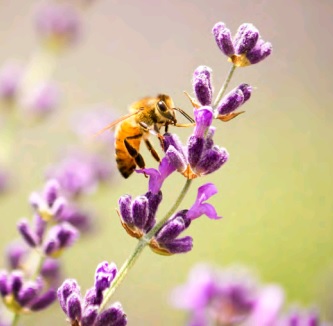- Blog
- Sustainable Economic Systems
- How nurseries are getting on board with pollinator protection
How nurseries are getting on board with pollinator protection

Donate Now!
Your contribution will benefit Friends of the Earth.
Stay Informed
Thanks for your interest in Friends of the Earth. You can find information about us and get in touch the following ways:
As the plight of honey bees and other crucial pollinators gains more attention worldwide, a growing number of nurseries, garden retailers and landscaping companies both large and small are starting to listen to the growing body of science, consumer demand and take action to get neonicotinoid pesticides out of their gardening practices and off their shelves while avoiding regrettable substitutions and adopting healthy practices for bees and the environment. In our recently released report, “Growing bee-friendly garden plants: Profiles in innovation,” we highlight strategies growers, retailers and major purchasers across the United States are using to make their plants truly bee-safe.
Neonicotinoids, or neonics for short, have been implicated in a large body of science as one of the major contributors to global bee die-offs. They are the most widely used insecticides in the world both — in agriculture and around the home. Plus they are toxic to bees, long-lived (lasting for months to years in the environment) and systemic — meaning they move through the plant and can exist in pollen. Neonics have not just three, but four strikes against them.
But, given a lack a strong federal policy on neonics, garden retailers and nurseries are already stepping up to minimize, and in some cases eliminate completely, neonics usage. Here’s a few ways how:
Getting neonicotinoid plants off shelves entirely
It’s an obvious first step for sellers concerned with pollinator health. BJ’s Wholesale Club, a major garden retailer with more than 200 locations in 15 states, is in the midst of transitioning away from neonic-treated plants. In its first year of the process, the company will require pre-treated plants to be labeled with a sticker identifying the hazards to pollinators. In the second year, BJ’s will require all of its suppliers to provide untreated plants, with only a few exceptions.
Make it the rule: Setting strong neonicotinoid use policies
Retailers and nurseries alike are acting to make their commitments to pollinator health official by setting in stone policies to address neonics. These include choosing how to label non-treated plants, separating those from treated plants to avoid pesticide contamination, and educating customers about the policy.
GardenFever! in Portland, Oregon clearly labels bee-safe products that were not treated with neonicotinoids in production.
Getting some help from natural predators
Some nurseries are employing beneficial insects as a natural defense against threatening pests. Carefully introducing insects such as beneficial nematodes, praying mantises or lacewings would allow nature to regulate excessive threats to nursery plants.
Spreading the word
Some retailers, such as Harlequin’s Gardens in Boulder, Colo., hold classes to educate customers and community gardeners on the proper neonic-free pest management strategies. In these, gardeners learn about acceptable levels of cosmetic damage in plants grown using integrated pest management techniques. A few small pests or discolored leaves are not reason enough to over-apply pesticide — in fact, a certain number of pests are necessary to contribute to healthy garden ecosystems.
A view of the Harlequin’s Gardens New Western Demonstration Garden, managed organically.
To see more detail about how leading nurseries and retailers are protecting pollinators, read the full report here. For a list of bee-safe retailers, go to www.foe.org/beeaction/retailers.
Image credits: Lori Vollmer at GardenFever!, Mikl Brawner at Harlequin’s Gardens
